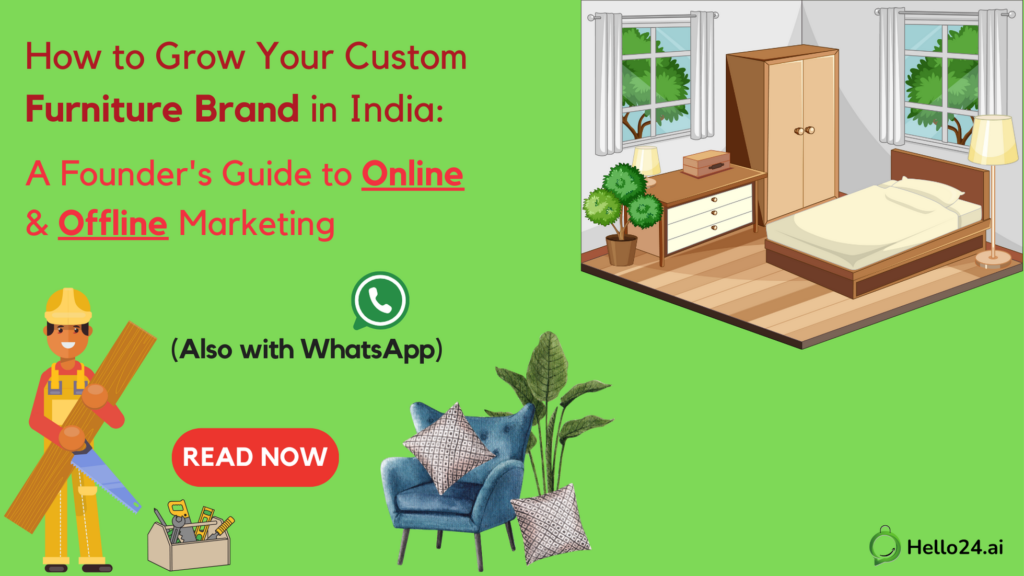As a founder in the custom furniture space, you know that your designs tell a story—one of craftsmanship, innovation, and a personal touch that mass-produced pieces just can’t match.
But how do you ensure that your unique story reaches the right audience in India?
The answer lies in a balanced mix of online and offline marketing strategies for your custom furniture brand to grow in India.
Let’s dive into a comprehensive guide that speaks directly to you, offering actionable insights to grow your brand.
📌Online Marketing Strategies Custom Furniture Brand to Grow in India
1. Build an Engaging, SEO-Optimized Website
Your website is often the first interaction potential customers have with your brand. Make sure it not only showcases your beautiful designs but also reflects the quality and uniqueness of your work.
- Portfolio Showcase: Use high-quality images, detailed descriptions, and engaging case studies to highlight your custom designs. A visually appealing, mobile-friendly site can make all the difference.
- SEO Best Practices: Optimize your site with keywords like “custom furniture India,” “bespoke furniture,” or even location-specific terms (e.g., “custom furniture in Mumbai”). This will help potential customers find you when they search online.
2. Embrace Content Marketing
Content is a powerful tool to build trust and establish yourself as an industry expert.
- Blog and Guides: Write posts about interior design trends, furniture care tips, and the custom design process. Sharing your expertise can inspire confidence in your brand.
- Video Content: Create behind-the-scenes videos, virtual tours of your workshop, or customer testimonials. Platforms like YouTube allow you to connect with a broader audience by putting a face to your craft.
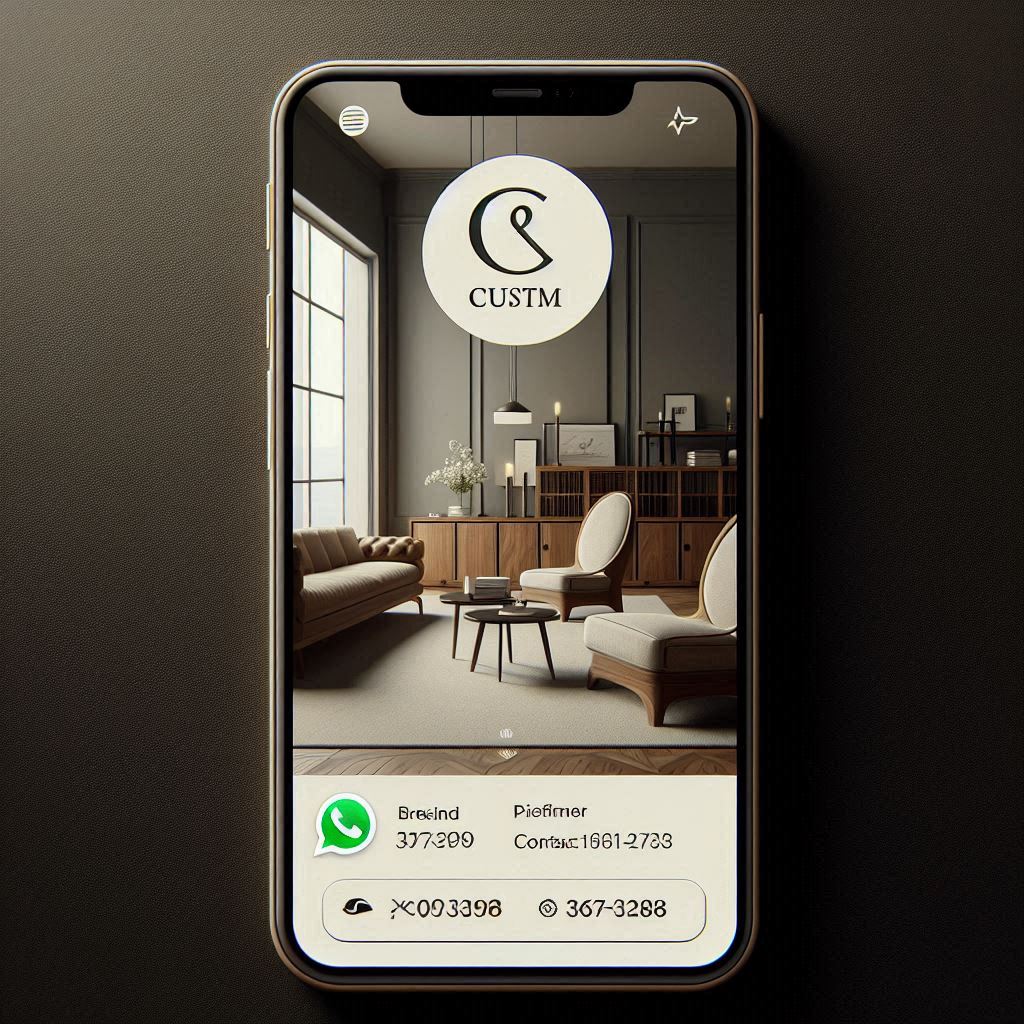
3. Engage on Social Media
Social media is a fantastic way to build relationships and showcase your craftsmanship.
- Platform Selection: Focus on visually-driven platforms like Instagram, Facebook, and Pinterest. Share your design inspirations, customer stories, and the process behind creating your pieces.
- Paid Advertising: Use targeted social media ads. Platforms like Facebook and Instagram allow you to target urban professionals, interior design enthusiasts, and homeowners in key cities.
- Influencer Collaborations: Partner with interior designers and lifestyle influencers who resonate with your target audience. Their endorsements can lend credibility and expand your reach.
4. Leverage Digital Advertising & Lead Generation
Investing in digital advertising can drive more qualified leads directly to your site.
- PPC Campaigns: Use Google Ads to target specific keywords related to custom furniture. Retargeting campaigns can help bring back visitors who showed interest but haven’t yet made a purchase.
- Email Marketing: Build an email list through your website and social media channels. Send out newsletters featuring new collections, design tips, and exclusive offers to keep your audience engaged.
5. Create Virtual Showrooms and Use AR/VR
Modern technology can offer customers an immersive experience:
- Interactive Experiences: Develop a virtual showroom or incorporate augmented reality (AR) tools that let customers see how your pieces would look in their space. This not only differentiates your brand but also enhances the buying experience.
📌Offline Marketing Strategies Custom Furniture Brand to Grow in India
1. Invest in Physical Showrooms & Pop-Up Events
While online presence is crucial, nothing beats the tactile experience of seeing and feeling your furniture in person.
- Local Showrooms: Consider having a dedicated showroom or partnering with established furniture or lifestyle stores in urban centers like Delhi, Mumbai, or Bengaluru.
- Pop-Up Events: Host pop-up events or temporary exhibits in high-traffic areas. These events allow customers to interact with your products and can generate buzz around your brand.
2. Participate in Trade Fairs & Exhibitions
Trade fairs and exhibitions are excellent opportunities to network with industry professionals and connect with design-savvy consumers.
- Industry Events: Participate in furniture and interior design exhibitions, where you can showcase your work to architects, interior designers, and potential buyers.
- Local Exhibitions: Local home & decor shows provide direct access to homeowners who value craftsmanship and unique design.
3. Utilize Print and Outdoor Advertising
Traditional advertising still plays a significant role, especially when targeting local markets.
- Magazines & Newspapers: Advertise or get featured in lifestyle magazines and design journals like “Architectural Digest India.” This helps in reaching an audience that appreciates quality and design.
- Brochures and Catalogs: High-quality printed catalogs can be distributed in your showrooms, at partner stores, or during events to leave a lasting impression.
- Outdoor Campaigns: Billboards or transit ads in upscale urban areas can further boost your brand’s visibility among potential high-end customers.
4. Forge Strategic Partnerships
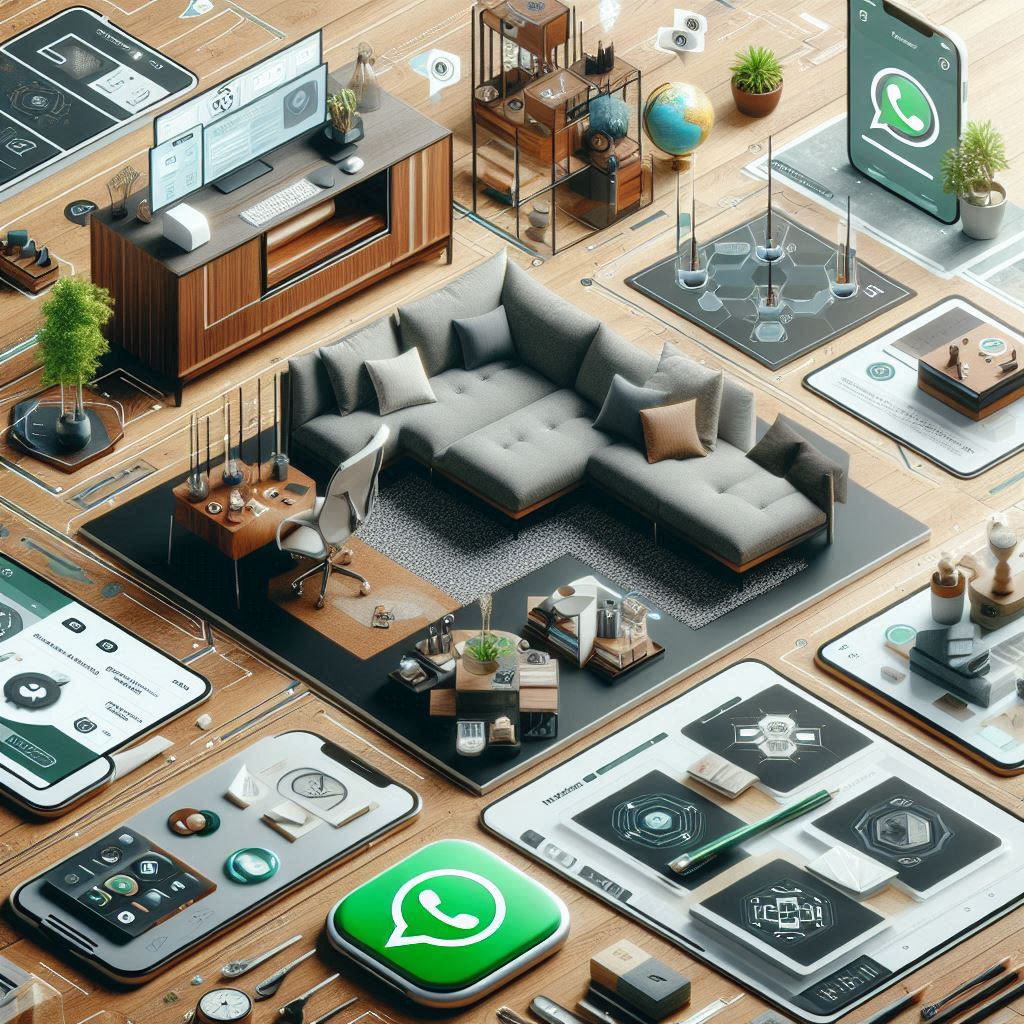
Collaborations can open new avenues for growth.
- Interior Designers and Architects: Build relationships with professionals who can recommend your furniture to their clients. Offering incentives or referral commissions can make these partnerships mutually beneficial.
- Real Estate Developers: Collaborate with luxury residential projects to feature your custom pieces in model homes. This not only builds credibility but also reaches an audience that values quality living spaces.
- Local Artisans and Craftsmen: Partnering with local artisans can emphasize the uniqueness of your products and appeal to customers who value handcrafted details.
5. Engage Your Community Through Workshops
Building a community around your brand can foster loyalty and establish you as a thought leader.
- Design Workshops: Host seminars or workshops on home décor, custom furniture design, or even DIY customization. This positions your brand as an authority and helps build a community of engaged customers.
- Sponsorships and Local Events: Sponsor local cultural or design events to further cement your presence in the community and connect with potential clients.
↘️Integrating Online & Offline Efforts
The key to maximizing your brand’s growth lies in the seamless integration of your online and offline strategies:
- Consistent Branding: Ensure that your brand message and visual identity are consistent across all channels. This builds trust and reinforces your brand image.
- Cross-Promotion: Use offline materials like brochures, business cards, and event signage to drive traffic to your online platforms. Incorporate QR codes that lead directly to your virtual showroom or website.
- Customer Feedback Loop: Actively seek feedback from both online and offline customers. Use this information to refine your products and marketing strategies.
- Unified CRM: Implement a customer relationship management system that captures leads from both online and offline channels. This ensures a smooth journey from initial interest to purchase.
Now as the founder of a custom furniture brand, you’re always on the lookout for innovative ways to connect with your audience.
With over 400 million+ active users in India, WhatsApp isn’t just a messaging app—it’s a powerful marketing tool that can help you boost brand awareness, retarget the right customers, enhance engagement, drive sales, and generate referrals.
Here’s how you can harness WhatsApp marketing to achieve these goals for your custom furniture brand in India, along with practical use cases and examples.
1. Improve Brand Awareness
Branded Profile & Status Updates
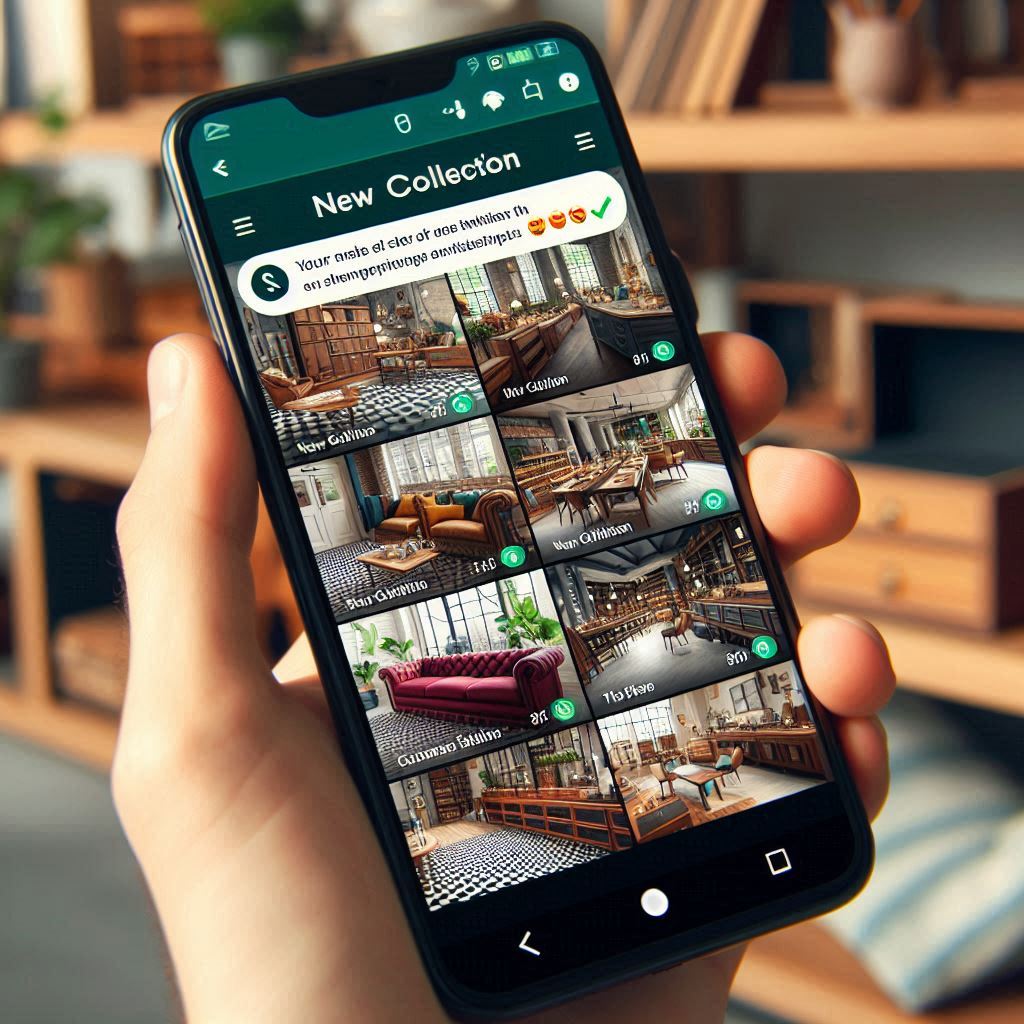
- Set Up Your WhatsApp Business Profile:
Create a compelling business profile with your brand logo, description, website link, and contact details. This not only establishes credibility but also provides a clear introduction to potential customers. - Utilize WhatsApp Status:
Just like Instagram Stories, WhatsApp Status lets you share images, videos, and text updates that vanish after 24 hours. Use this feature to:- Showcase new collections or design innovations.
- Share behind-the-scenes glimpses of your workshop or design process.
- Highlight customer testimonials or before-and-after transformations.
A custom furniture brand in Mumbai regularly updates its WhatsApp Status with high-quality visuals of its latest bespoke designs. Over time, these engaging updates create a visual narrative that familiarizes the audience with the brand’s craftsmanship and attention to detail, boosting overall brand awareness.
2. Re-target the Right Audience
Segmented Broadcast Lists & Automated Messages
- Create Segmented Lists:
Organize your contacts based on their interaction with your brand (e.g., website visitors, previous buyers, inquiries). This allows you to send targeted messages that speak directly to each group’s interests. - Leverage Automated Messaging:
Use WhatsApp Business API tools to set up automated messages for frequently asked questions, order confirmations, or even abandoned cart reminders.Use Case:
Suppose you have a list of potential customers who visited your website and showed interest in a particular line of custom chairs but didn’t complete their purchase. You can send a personalized broadcast message offering a limited-time discount or a free consultation to reignite their interest and bring them back to your website.
3. Boost Customer Conversation and Engagement
Interactive Communication & Quick Replies
- Two-Way Conversations:
WhatsApp is inherently conversational. Encourage direct communication by responding promptly to customer inquiries about customization options, materials, or design suggestions. - Quick Replies & FAQs:
Prepare a set of quick replies for common queries (e.g., “What’s your delivery time?”, “Can I customize the dimensions?”). This ensures that customers get timely responses, which enhances trust and satisfaction.Use Case:
A prospective customer messages your brand about designing a bespoke sofa. Instead of keeping them waiting, your WhatsApp Business tool immediately sends a greeting message and a list of options (materials, colors, design features) they can choose from. Later, a customer service representative picks up the conversation for detailed customization, making the interaction seamless and engaging.
4. Increase Sales, Orders & Re-orders
Product Catalogs & Order Follow-ups
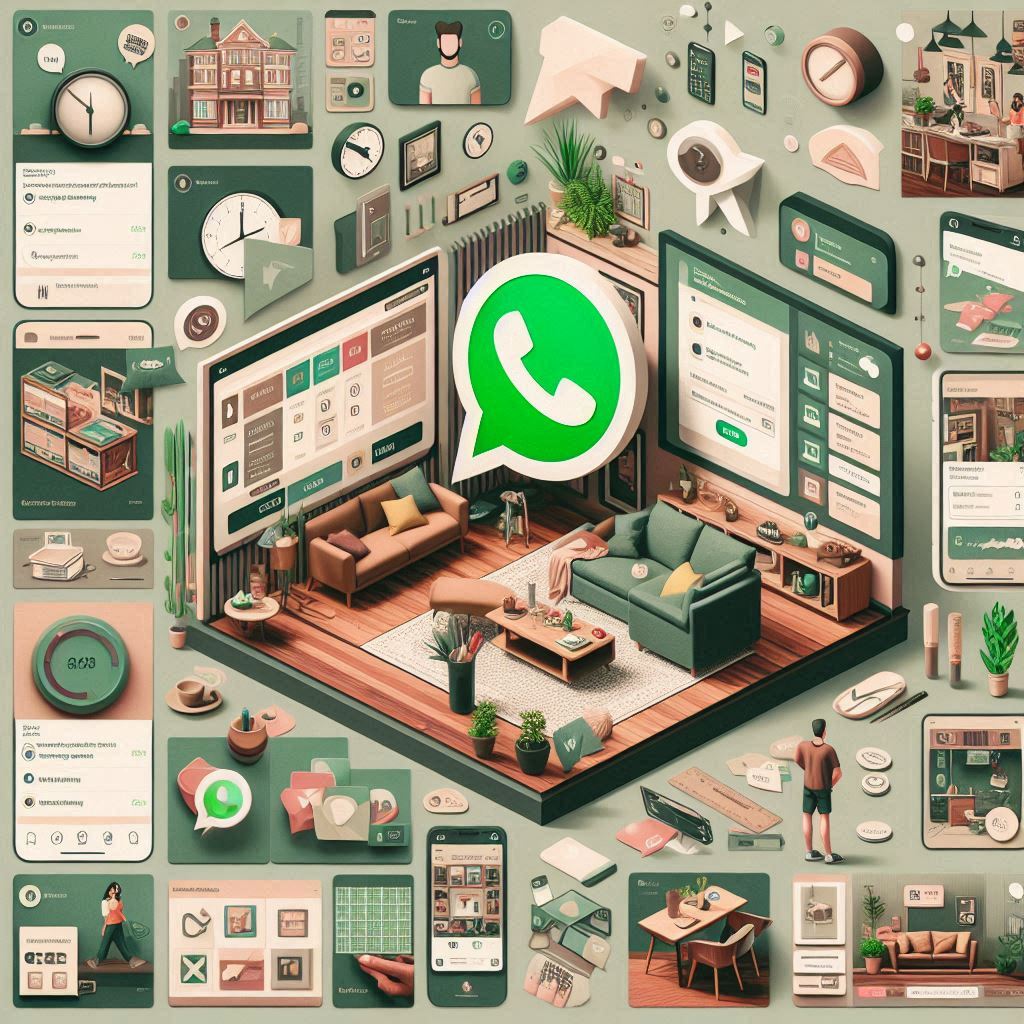
- Showcase Your Catalog:
WhatsApp Business allows you to create a digital catalog where you can upload images, prices, and descriptions of your products. This makes it easy for customers to browse your offerings directly within the app. - Order Updates & Follow-ups:
Keep customers informed about their order status—whether it’s confirmation, dispatch, or delivery. After the sale, send care tips or maintenance advice, along with exclusive discounts for future purchases.Use Case:
After a customer orders a custom dining table, you send a series of messages via WhatsApp:- Order Confirmation: “Thank you for your order! Your custom dining table is being crafted with care.”
- Delivery Update: “Your table is out for delivery today—get ready to welcome elegance into your home!”
- Post-Delivery Engagement: “We hope you love your new table! Here are some care tips to keep it pristine, plus enjoy 10% off your next order with code THANKYOU10.”
5. Spread Word of Mouth and Encourage Referrals
Referral Programs & User-Generated Content
- Create a Referral Program:
Encourage your satisfied customers to spread the word by offering them incentives for referrals. For example, provide a discount or a special offer for every friend they refer who makes a purchase. - Encourage Sharing on Status:
Ask your customers to share pictures of your custom furniture in their homes on their WhatsApp Status. Offer rewards or recognition for sharing, which can organically boost your brand’s reach.Use Case:
After completing a project, you could send a message like: “We’d love to see your space transformed by our custom furniture! Share a photo of your new [Product Name] on your WhatsApp Status and tag us. For every referral that results in a sale, enjoy an exclusive discount on your next order!” This approach leverages the power of word-of-mouth and social proof, turning your happy customers into brand ambassadors.
🧲Final Thoughts
WhatsApp marketing offers a highly personalized and direct way to reach your audience—perfect for a custom furniture brand where storytelling and quality matter. You can significantly improve brand awareness, drive engagement, and boost sales by setting up a robust WhatsApp Business profile, segmenting your audience for targeted messaging, engaging in two-way conversations, and integrating order follow-ups.
Moreover, by incentivizing referrals and encouraging user-generated content, you can expand your reach through word-of-mouth, creating a community of loyal customers who believe in your craftsmanship.
Embrace WhatsApp marketing as an integral part of your omnichannel strategy, and watch your custom furniture brand flourish in competitive market of India .
Happy connecting with our experts!

